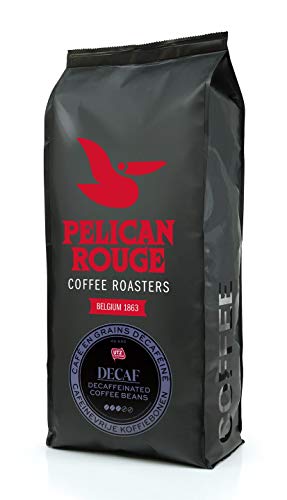Where to Buy Coffee Beans

The best flavor comes from purchasing fresh coffee beans, and grinding them prior to making your coffee. You can also regulate the size of the grind, which isn't possible when using pre-ground.
If possible, purchase locally from a roaster or retailer that specializes in high quality imports. Supporting small businesses helps them to survive and makes for better tasting coffee.
1. Find a roaster that is reputable.
The quality of the beans and roasting are both essential to a excellent cup of joe. You can find excellent beans from a variety of online roasters. Not all roasters are created equal. Certain roasters are focused on variety while others are more specific and focusing on the perfect roast every time. You can find out more about a roaster by checking their packaging as well as their website and reviews.
When purchasing wholesale coffee beans, select the roaster that is dedicated to sustainability and ethical business practices. This will ensure that your coffee shop is getting the finest beans in an environmentally responsible way. Many coffee shops also prefer to buy local roasters in order to support their community.
You can save money by purchasing whole coffee beans and grinding them yourself. This is an easy and effective way to get a fresher flavor in your coffee. You can also cut down on shipping charges if you purchase from a local roaster who can deliver to your area.
2. Buy in smaller batches
When you buy from a small batch roaster it is a great way to ensure that your beans are fresh. This is because small batch roasters have their stock low and move their beans swiftly so that they don't have to remain in storage for long beforeor post roasting. They also roast at a lower temperature to avoid overdoing things.
Also, look for labels that include a "roasted on" date, as well as (or instead of) the sell-by date. Certain high-end roasters stamp this information directly on the bag, for example Stumptown or Counter Culture. They also often include information on the beans themselves, including varietal, altitude, name
250g of Freshly Roasted Medium Arabica Coffee Beans the farmer, and more.
Much of the coffee that's traded within the second wave and beyond is a commodity coffee, which is processed in large batches and is generally dark-roasted, as it hides all sorts of imperfections. This coffee isn't terrible however it's not as great as the coffee that you can find in small-batch roasters. It's a bit tastier and has an aftertaste that is stronger as it's aged for longer.
3. Buy fresh
As a perishable product, coffee beans begin losing their aroma and flavor when they're roasted. This is why it's important to purchase fresh coffee beans from a local roaster or online when you don't have a roaster close by.
The best way to do this is to verify the 'roasted on' or the 'use by' date on the bag. Then, you can determine the best time to buy. To get the best flavor and taste you should use the beans within two weeks following roasting.
It's sometimes difficult to tell how beans have sat on the shelves of a grocery store that offers a variety of beans. The reality is that many supermarkets don't have the facilities to keep their beans fresh as a roaster does.
It takes an extended time and a lot more money to invest in the right equipment to keep beans at their freshest. Even if they invest in this equipment, the amount of fresh beans they have available at any given time is limited.
4. Buy ground
The coffee aisle of the grocery store is filled with options for whole and ground beans from all over the world. While convenience is a major factor whole beans are better for your taste senses.
It is your obligation to grind the entire bean coffee prior to making it into a cup. This lets the freshness and subtle flavors to come through. The majority of the beans that are pre-ground on the market are medium grind. This is the size that works best with the majority of coffee brewing methods.
After the beans have been roasted the beans begin to decay and go stale quickly. This is due to the fact that after the roasting process, there's a gap inside the shell which expose the beans to oxygen. This happens much more quickly if the beans are not completely roasted.
Typically, whole bean grocery store coffee is stale by the time you bring it home. even the sealed cans in your local store are less fresh than freshly ground coffee from a reliable roaster. This is because once the beans are ground to sell and then roasted,
coffeee they lose their nuances and aromas, as well as their natural sugar. It is essential to purchase enough grounds to last one week and store them properly.
5. Buy fair trade
Fair trade is a system that guarantees coffee farmers fair prices on the market. While the International Coffee Agreement is important in controlling quotas and keeping prices stable Fair trade organizations take it one step further.
The goal of Fair Trade is to lift coffee farmers out of poverty and create an environmentally sustainable model for the entire industry. In addition to fair prices, fair trade also requires environmentally sustainable farming practices that safeguard and preserve ecosystems and wildlife. This benefit isn't just for farmers but for the environment and the people who consume it.
FLO and Fair Trade USA are primarily focused on decreasing poverty and promoting economic growth by establishing an upper price for green coffee beans. They use this floor to index the New York Coffee Exchange price. Thus, if the cost for commodity (non-specialty coffee) drops, the fair trade prices rise to match that. FLO and Fair Trade USA also require that farmers receive an equitable amount and work in safe working conditions. They also have to respect reasonable working hours.

 The best flavor comes from purchasing fresh coffee beans, and grinding them prior to making your coffee. You can also regulate the size of the grind, which isn't possible when using pre-ground.
The best flavor comes from purchasing fresh coffee beans, and grinding them prior to making your coffee. You can also regulate the size of the grind, which isn't possible when using pre-ground.